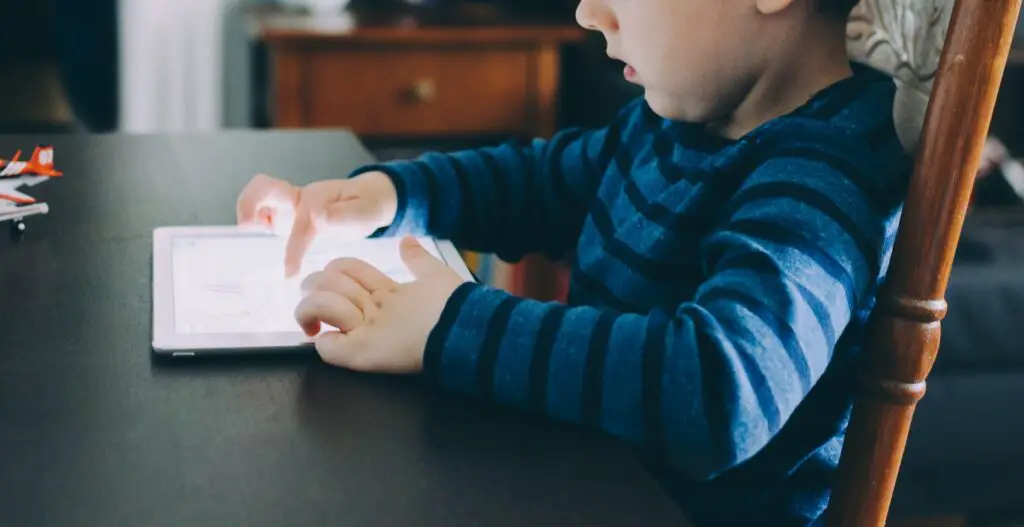
Emotional Regulation Games
Emotional regulation games are fun and interactive activities designed to help children regulate their emotions and develop important coping skills.
These games often incorporate elements of play and learning to teach emotional awareness, self-regulation, and problem-solving.
By engaging in these activities, children can learn to manage their emotions in a healthy way, leading to happier and more emotionally resilient kids.
What are Emotional Regulation Games?
Emotional regulation games are specifically designed to help kids understand and regulate their emotional state.
Understanding emotional regulation is the ability to effectively manage and respond to different emotions and feelings.
These games provide a platform for children to engage in activities that promote self-regulation and social and emotional learning.
Understanding Emotional Regulation
Emotional regulation is the process of recognizing, understanding, and effectively managing one’s emotions. It involves the ability to regulate and control emotional responses to different situations.
By engaging in emotional regulation games, children can learn to identify and manage their emotional state in various circumstances.
Benefits of Emotional Regulation Games
Emotional regulation games offer numerous benefits for children, including the development of coping skills, problem-solving abilities, and understanding of different emotions.
These games help children develop essential emotional regulation skills in a fun and engaging manner, promoting healthy emotion management and positive social interactions.
Types of Emotional Regulation Games
There are various types of emotional regulation games, including board games, interactive activities, and online platforms specifically designed to help children regulate their emotions.
These games focus on teaching self-regulation, coping strategies, and social and emotional learning, providing a comprehensive approach to emotional regulation activities.
How Can Regulation Games Help Children?
Emotional regulation games can have a significant impact on the emotional well-being of children by teaching them self-regulation, developing coping skills, and enhancing problem-solving abilities.
These games provide valuable opportunities for children to learn and practice regulating their emotions in different situations while having fun.
Teaching Self-Regulation
By engaging in regulation games, children can learn and practice self-regulation, which is essential for managing their emotional responses and behaviors.
Through these activities, children can develop the ability to regulate their emotions and navigate various social and environmental challenges.
Developing Coping Skills
Emotional regulation games help children develop important coping skills that allow them to effectively manage stress, anxiety, and other challenging emotions.
These games provide a safe and supportive environment for children to explore different coping strategies and develop resilience.
Enhancing Problem-Solving Abilities
Regulation games promote the development of problem-solving abilities by encouraging children to find constructive ways to manage their emotions and navigate interpersonal interactions.
These activities nurture critical thinking and decision-making skills, empowering children to address emotional challenges effectively.
What are Some Popular Emotional Regulation Games?
Several popular emotional regulation games are widely used to help children regulate their emotions and enhance their emotional awareness and social skills.
These games offer engaging and educational experiences that support the development of crucial regulation skills.
Exploring Zones of Regulation
The Zones of Regulation is a widely recognized framework that utilizes various activities and games to help children explore different emotional states and learn strategies for self-regulation.
This approach focuses on teaching children to identify and navigate their emotions within specific “zones” to develop emotional regulation skills.
Engaging Self-Control Games
Self-control games provide interactive experiences that teach children the importance of self-regulation, impulse control, and managing their emotional responses.
These games offer opportunities for children to practice self-control and develop essential skills for regulating their emotions in different contexts.
Utilizing Social Emotional Learning Games
Social emotional learning games integrate various activities and exercises to enhance children’s social and emotional skills, including self-awareness, empathy, and emotional regulation.
These games provide a holistic approach to supporting children’s emotional well-being and promoting positive social interactions.
Where to Find Resources and Activities for Emotional Regulation Games?
Parents, educators, and therapists can access a wide range of resources and activities for emotional regulation games to support children’s emotional development and well-being.
Various online platforms and interactive tools offer valuable resources and support for incorporating emotional regulation activities into children’s everyday lives.
Online Platforms for Regulation Games
Online platforms provide access to a diverse collection of emotional regulation games and activities that can be easily integrated into home and educational settings.
These platforms offer a convenient and accessible way to engage children in fun and educational experiences focused on developing their emotional regulation skills.
Interactive Tools for Emotional Regulation
Interactive tools, such as apps, websites, and digital resources, offer engaging and interactive experiences for children to learn and practice emotional regulation.
These tools provide a range of activities and games designed to enhance children’s emotional awareness, self-regulation, and coping strategies.
Supporting Emotional Regulation in Schools
Educational institutions and professionals in occupational therapy and counseling can implement specific programs and activities to support emotional regulation in school environments.
These initiatives aim to create supportive and inclusive spaces for children to develop and practice regulation skills while fostering positive emotional well-being.
How Can Emotional Regulation Games Lead to Happier Kids?
Engaging in emotional regulation games can significantly contribute to children’s overall happiness and emotional well-being by promoting healthy emotion management, positive social interactions, and fostering emotional awareness.
These games offer valuable opportunities for children to develop crucial emotional regulation skills in a supportive and enjoyable manner.

Promoting Healthy Emotion Management
Emotional regulation games provide children with tools and strategies to effectively manage and express their emotions in a healthy and constructive manner.
By practicing emotional regulation through games and activities, children can develop the skills necessary to navigate their emotional experiences and maintain positive emotional well-being.
Encouraging Positive Social Interactions
Through collaborative and interactive experiences, emotional regulation games foster positive social interactions, empathy, and understanding of others’ emotions.
These games encourage children to engage in meaningful communication and develop supportive relationships, contributing to their overall happiness and emotional development.
Fostering Emotional Awareness
Emotional regulation games help children develop a heightened awareness of their emotions and the emotions of others, promoting empathy and emotional intelligence.
By understanding and regulating their emotions, children can develop a deeper sense of self-awareness and enhance their emotional resilience, leading to happier and more emotionally aware kids.

